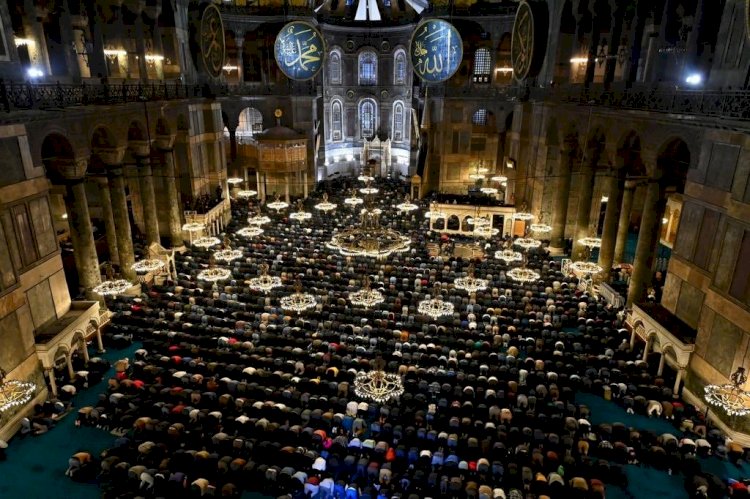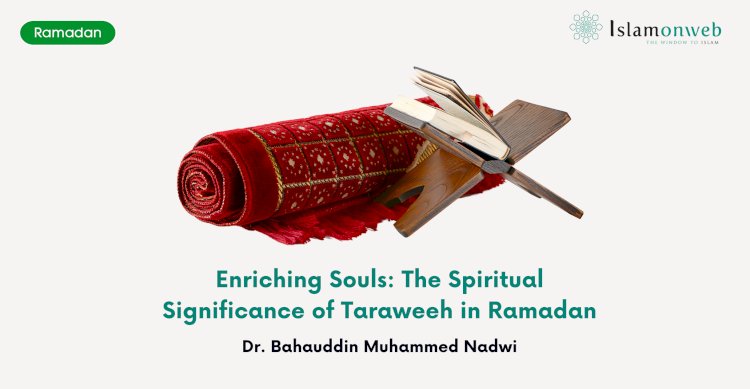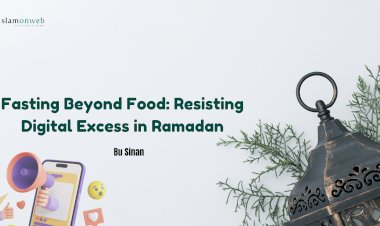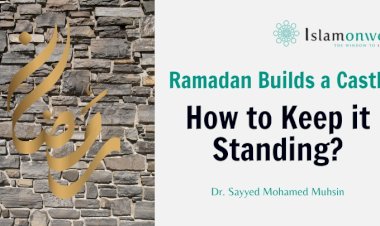Enriching Souls: The Spiritual Significance of Taraweeh in Ramadan
Ramadan, Taraweeh, Tarawih, Qiyam Ramadan, Ramazan,
The sacred month of Ramadan has arrived, ushering in a period of fasting and devoted acts of worship that enrich the days ahead with blessings and prosperity. Among these acts, Taraweeh prayer stands as one of the most auspicious rituals during Ramadan. Scholars have introduced it as 'Qiyamu Ramadan,' a noble Sunnah prayer exclusively performed at night throughout this holy month.
It is crucial not to perceive Taraweeh as a mere ritual; rather, it is a special act of great virtue and reward for fasting believers. The Prophet Muhammad (PBUH) conveyed that performing the Ramadan prayer with faith and seeking its reward leads to the forgiveness of past sins (Bukhari, Muslim, Turmudi). Allah has mandated the fasting of Ramadan and established prayer as a Sunnah. Those who pray with faith and seek reward are promised forgiveness, rendering them as innocent and pure as the day their mothers gave birth (Annasa'i). Scholars such as Imam Nawawi and Allama Kirmani have clarified that the prayer mentioned in these hadiths is specifically Taraweeh.
This worship is performed after the Isha prayer and before Fajr in Ramadan. Congregational prayer (Jamaat) is recommended for both men and women, with women advised to pray at home and men in mosques. Taraweeh, derived from the Arabic word 'Tarweeh,' meaning rest, has a historical connection to early Meccan Muslims performing circumambulation (tawaf) of the Kaaba after four rak'ats of Taraweeh for relaxation.
Although Taraweeh is not an obligatory act (fard), the Prophet (PBUH) encouraged his followers to engage in it. Under his leadership, Taraweeh was congregationally held in Madinah for only three or four days, as the Prophet, out of concern, refrained from attending subsequent nights to prevent its potential obligation due to the increasing number of participants.
The incident narrated by Aisha (RA) further illustrates the Prophet's cautious approach. Following his initial mosque prayer, the number of attendees increased over subsequent nights. However, the Prophet intentionally abstained, expressing his apprehension that this practice might become obligatory. This episode, occurring in Ramadan, signifies the Prophet's reluctance to impose unnecessary burdens on the believers. During the Prophet's lifetime, the era of Caliph Abu Bakr Saddiqi (RA), and the early reign of Umar (RA), Taraweeh prayer was not systematically performed in mosques but was observed by believers in their homes.
In the year 14 Hijra, during Caliph Umar's second year in office, he issued an order to systematically perform Taraweeh prayer in twenty rak'ahs. Observing that his companions were praying individually or in groups in their homes and mosques, Caliph Umar believed that congregating in the mosque would be more beneficial. After consulting with his companions, they unanimously agreed. Under the leadership of Ubayy bin Kaabi (RA), Taraweeh prayer was re-established as a congregation at that time.
The consensus among scholars is that Taraweeh should consist of twenty rak'ahs. The Prophet Muhammad (PBUH), his Companions, and the Tabi's who followed them all prayed twenty rak'ahs. Some individuals may mistakenly pray only two or four rak'ahs in the name of Taraweeh due to ignorance on the subject. However, unlike prayers such as Awwabeen, Tahajjud, and Luha, which have a minimum of two rak'ahs recorded, there is no specified minimum or maximum for Taraweeh. In all four madhhabs, it is unanimously agreed upon that Taraweeh consists of twenty rak'ahs.

According to the narration of Ibn Abbas (RA), during Ramadan, the Prophet (PBUH) used to pray twenty rak'ahs of Taraweeh, followed by Witr (Tabrani). The consensus among the four Imams, who are scholars of Islamic jurisprudence, supports this practice. Sa'ib Ibn Yazidi (RA) also narrates that during the time of Caliph Umar, the Companions prayed twenty rak'ahs of Taraweeh in Ramadan. During the era of Caliph Usman (may Allah be pleased with him), they even used sticks to support themselves due to the lengthy recitation of hundreds of Quranic verses and prolonged prayer sessions.
Imam Nawawi (RA) affirmed the authenticity of the Hadith chain in question, stating in his work "Sharhul Muhaddab" that the Hadith reported by Sahib bin Yazidi (RA) through Imam Baihaqi (RA) and others is supported by a reliable chain of narrators. Scholars in the field of hadith science acknowledge that the words and deeds of the Companions can be attributed to the Holy Prophet (PBUH) in matters where extensive research is not feasible. As the exact number of Taraweeh rak'ats is not definitively established from the Prophet (PBUH), the consensus among the Companions in performing twenty rak'ats should be accepted as reflective of the Prophet's own practice.
The primary evidence refuting the misconception that Taraweeh is not twenty rak'ahs lies in the Hadith narrated by Aisha (RA) regarding the Prophet's prayer during Ramadan and other occasions. The mention of "Ramadan and other" in the Hadith's initial part, stating, "The Prophet (PBUH) did not increase more than eleven in Ramadan or otherwise," specifically pertains to witr. This indicates that Taraweeh, distinct from witr, is not performed outside of Ramadan, as affirmed by scholarly consensus.
Even Ibn Taymiyyah expounds on the established practice during the time of `Umar (RA), highlighting that Ubayyub ibn Ka'b (RA) prayed twenty rak'ahs with the people, a practice embraced by the Ansar and the Muhajirs without objection (Majmoo'ul Fatawa).
Viewing Taraweeh as more than a mere worship or ritual during the holy month is essential, considering the manifold rewards bestowed upon believers for their good deeds. A fasting believer, having observed the day, should draw closer to Allah and intensify their worship during the night through Taraweeh. As previously mentioned, the forgiveness of past sins is facilitated through the night prayers of Ramadan. Thus, engaging in Taraweeh represents a golden opportunity to purge the stains of the past and embark on a renewed life with a purified soul.
A man approached the Holy Prophet and declared, "O Prophet, I bear witness that there is no god but Allah, and you are His Messenger. I observe the five daily prayers, give zakat, and fast adn pray during Ramadan. To whom do I belong?" The Prophet's (PBUH) response, as recorded by Ibn Hibban, was: "You belong among the righteous and the martyrs." (Ibn Hibban)
The act of fasting and engaging in Taraweeh prayers holds a promise from the Creator, elevating those who perform them to the esteemed status of the truthful (Siddeeq) and martyrs—positions considered among the highest after Prophethood. This signifies that Taraweeh Namaz has the potential to enrich both past and future spiritual endeavors.
Believers are encouraged to willingly partake in this noble deed every day of the holiest month. Extensive Taraweeh sessions in mosques, with an increased recitation of Quranic verses, serve as a testament to the profound thoughts and lessons encapsulated in the Quran. Historical accounts reveal that Caliph Ali (RA) went to the extent of inviting those who had memorized the Qur'an to lead Taraweeh prayers as imams during Ramadan.
The indescribable emotions experienced during Taraweeh prayers in various states of India and different Arab and non-Arab countries underline the universal significance of this spiritual practice. It is anticipated that this Ramadan will be blessed through the earnest performance of Taraweeh, bringing profound spiritual and physical well-being to believers.
About the author: Dr. Bahauddin Muhammed Nadwi is a prominent Muslim scholar from Kerala, India. He currently serves as the founding Vice Chancellor of Darul Huda Islamic University. Dr. Nadwi is recognized for his efforts in modernizing Islamic education. His scholarly contributions include authoring books on various Islamic subjects including Quran Translation to Malayalam and delivering lectures around the world. He has also served as editor-in-chief for several Islamic publications. Dr. Nadwi's influence extends beyond academics. He is consistently listed among the world's 500 most influential Muslims according to "The Muslim 500" publication.
Disclaimer
The views expressed in this article are the author’s own and do not necessarily mirror Islamonweb’s editorial stance.
























Leave A Comment